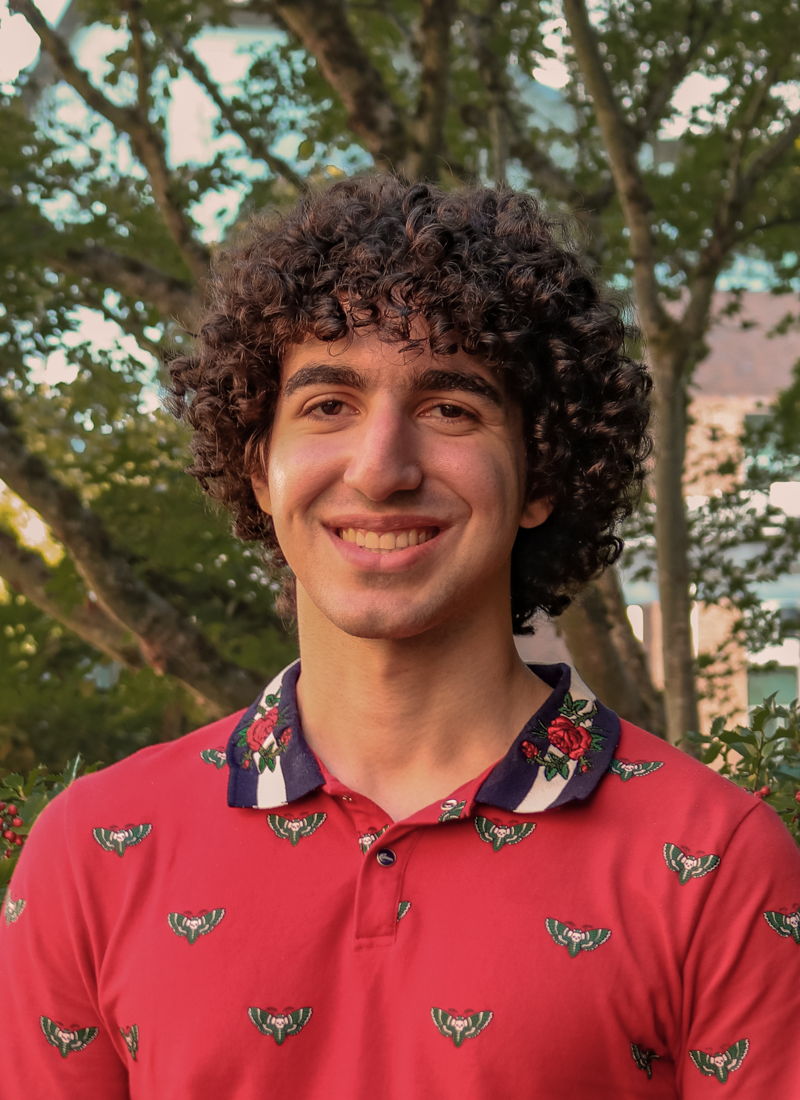This story was originally published in Vol. 34, Issue 2 (October 2023)
Loud, commanding drums began a steady rhythm as dancers Maria Elena Cortes Duran and Luz Jaramillo from Mexican-Chichimeca dance troupe Huehca Omeyocan twirled, stepped, and kicked, dancing in traditional Mexica attire. Their performance was the highlight of WSU Vancouver’s Hispanic Heritage celebration, La Fiesta, hosted by CILA on Sept. 7 in the Firstenburg Student Commons.
The troupe performed multiple dances, each with their own flair and pulse. Between performances, the group would take an interlude to share stories and history regarding their heritage and the significance of the dances. Huehca Omeyocan musician Eduardo Cruz elaborated on some aspects of the message and purpose of their work.
“It’s not about, you know, being proud of the Latino Hispanic or native,” said Cruz. “This is more about how you manage yourself and your energy. And hopefully here, you can learn how to do that pretty good because you’ll need that, it will be your energy throughout your life while being here, and after you’re done here.”
Based in McMinnville, Ore., Huehca Omeyocan performs all over the Portland-Vancouver metro area, and they visit Seattle as well. The dance group is experienced in their craft; Cruz has been drumming and playing instruments for the group for over 10 years, while Duran has been performing since she was 12 years old, with 29 years of experience in dancing and performing. In preparation for La Fiesta, planning and coordinating with CILA took about four weeks, according to Cruz. The group emphasized sharing culture as their primary motivation behind why they perform.
“Well, we do this to share culture, and when I’m saying our culture, we mean everyone’s culture,” said Duran. “Because there’s no discrimination of any race, color, or ethnicity… It doesn’t matter where you come from, we really embrace everyone to enjoy our culture and learn something, with respect.”
Cruz added that for him, performance is about the connection. While there are many reasons why he performs, he emphasized drumming, dancing, art, and education as being big motivators behind his work.
Prior to the performance, there were several tables packed full of students playing Lotería. Similar to bingo, Lotería is a game based on chance, where players mark pictures on their boards with marbles or stones with the aim of marking all images on their respective card to win. Towards the back of the event area, food was being handed out in the form of bean and cheese burritos. At the end of the table where the tortilla chips were, CILA member Fatimah Zahra Diallo, a sophomore majoring in computer science, emphasized her favorite aspect of the event being the food.
“It’s interesting. They have different spices here so it’s good,” said Diallo.
Huehca Omeyocan emphasized participation throughout the event, inviting attendees to join them in a group dance towards the end. Many participants were initially confused, but quickly learned and picked up on the rhythm and technique displayed by the performers. Aaron Kamal, an undergraduate student, shared his experience of both watching the dancers and participating in the dance.
“They were all amazing, it’s a lot harder than I thought because I was tripping out,” said Kamal. “I turned around the wrong way so many times.”
After the dancing winded down and some attendees began to leave, a piñata was set up outside. Filled with candy as is tradition, students gathered outside to take part in hitting the piñata until a lucky participant broke it. Corey Hing, a senior accounting major who participated in the whole event, stated that his favorite part was being exposed to an unfamiliar culture.
“I’ve never really experienced this culture,” said Hing. “Seeing it, and then actually being able to learn some of it and trying my best to be able to dance with them, that was an amazing opportunity.”

Shawyan is a junior studying computer science at WSU Vancouver.